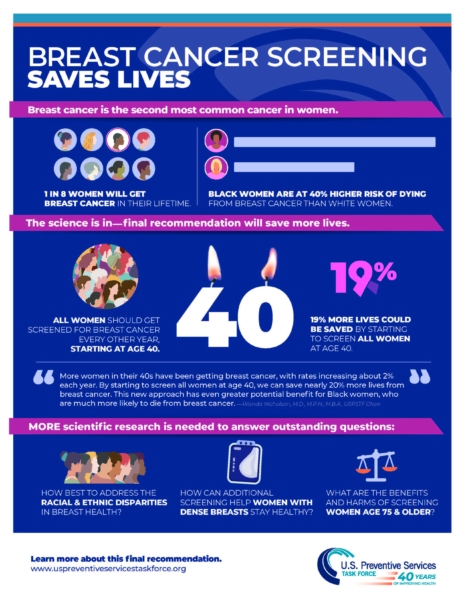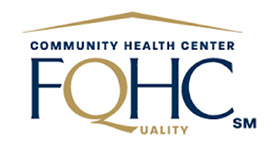homepage, News, Access Health Louisiana Primary Care at Pythian, Belle Chasse C.H.C, Kenner C.H.C., South Broad C.H.C, St. Bernard C.H.C., St. Charles – Norco C.H.C, St. Charles Community Health Center – Luling, St. Tammany – Slidell C.H.C, Washington C.H.C, Tangipahoa C.H.C, Woodworth C.H.C.
New Recommendations may help diagnose Breast Cancer earlier in Women
The United States Preventive Services Taskforce is recommending that all women get screened for breast cancer annually beginning at age 40. Previous recommendations suggested that women age 50 and older receive annual mammograms. However, with more women being diagnosed with breast cancer, the Taskforce believes early detection may be the key to saving more lives.
Mammograms are covered by most private health insurance plans with no out-of-pocket expense to the patient, according to the Affordable Care Act. Medicaid also covers annual mammogram screenings.
On average, African American women are at a greater risk of dying from breast cancer which is the second leading cause of cancer death among women aside from lung cancers. According to the American Cancer Society, breast cancer mainly occurs in middle-aged and older women. African American women also have a higher risk of triple-negative breast cancer more than any other racial or ethnic group. The group recommends that younger women conduct monthly breast checks and see their primary care physician if they feel an abnormal bump or lump.
For women who have dense breasts, the risk of breast cancer is also great. The Taskforce warns that sometimes, mammograms are not as efficient in detecting breast cancer in this scenario. Occasionally, additional screenings are needed.
A recent increase in more patients being diagnosed with breast cancer in their forties contributed to the taskforce making the recommendation changes for annual mammograms for women age 40 and up. To learn more about the importance of getting an annual mammogram screening and what questions you should ask your medical provider, click HERE to download the free guide in English or Spanish.


